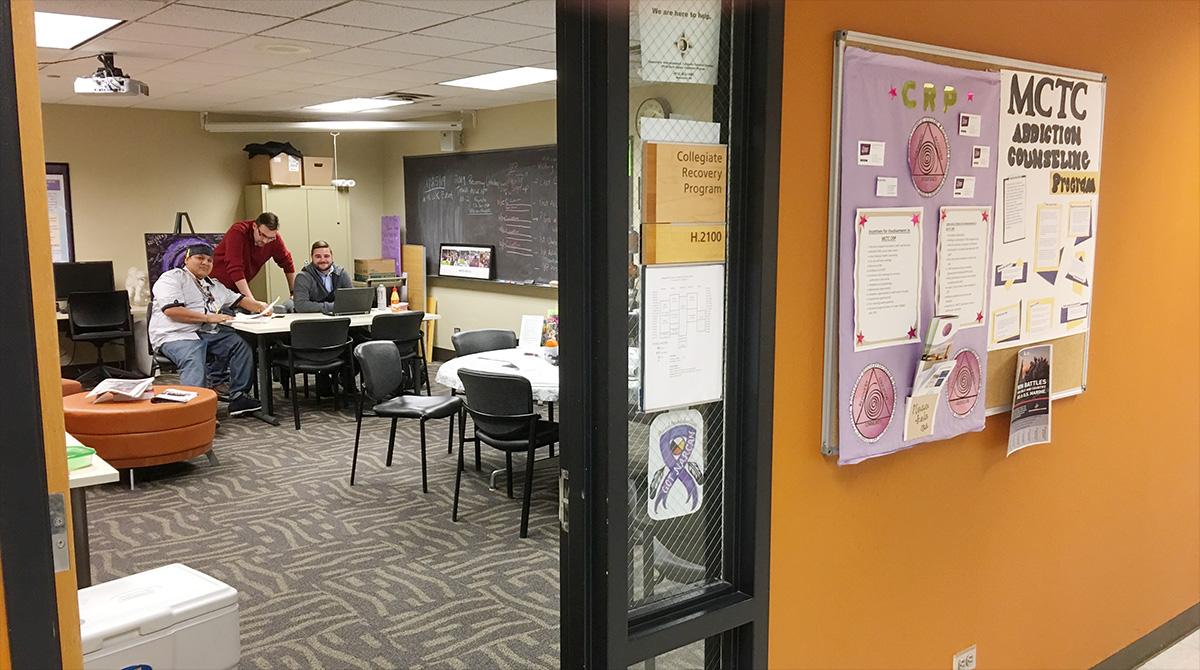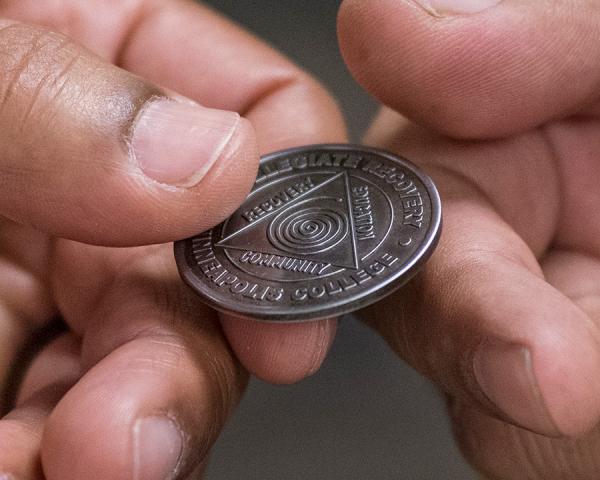Honoring the Past, Present and Future Work in Recovery
As the Addiction Counseling Program at Minneapolis College completes its 50th year and the Collegiate Recovery Program, it’s third. Faculty and staff reflect on the powerful ripple effect their work has on individuals and the community.
“Since its inception in the fall of 1970, the Addiction Counseling program, which is the first of its kind in Minnesota, has had 2,121 graduates,” said Bayla McDougal, Addiction Counseling faculty member in and graduate of the Program.
“If every graduate worked with at least 50 clients, our reach exceeds 100,000. The generations of people represent children, teens, adults, families and communities who have been positively impacted by the work of our students.”
The Addiction Counseling Program, which marked the beginnings of professionalizing the field, provides hands-on training from experienced faculty, grounding students in the fundamentals of counseling. The Program emphasizes the importance of interpersonal and cross-cultural communications and provides students a strong sense of support to encourage success. It is known for its constant evolution, meeting individual and community needs over time.
“The Addiction Counseling Program is respected in the field and holds a statewide reputation,” said Bayla, who credits the knowledgeable faculty, supportive staff and alumni connections for its success. “The Program is imbedded in one of the most diverse campus communities in the state with rich classrooms filled with people of all ages, backgrounds and professions. And we have dedicated graduates working in treatment centers, medical and mental health clinics, sober housing, harm reduction programs, policy makers, advocacy and change makers across Minnesota in a range of positions from entry-level to organizational leadership.”
"When I moved to Minnesota from Texas in spring of 2011, everyone thought I was crazy,” said graduate Jessica Koep who always knew she wanted to study addiction counseling. “I came to Minneapolis for a fresh start in life and to be closer to my family of choice.” Jessica anticipated she would learn, earn her diploma and move on. What she didn't know was her family of choice was going to grow significantly. “Being part of the Addiction Counseling Program was an incredible time in my life,” said Jessica who touts the professors at the College as the best in their field.
“I grew tremendously in my ability to listen and assist others in their healing process. It's this community and institution that developed many of the chemical health counselors around the state and it's the one we are all proud to have attended. The faculty cares about their students and the lives they build after college. I would not change a thing about my experience.”
Collegiate Recovery Program

One of the gems at the College and an asset to the Addiction Counseling Program is the Collegiate Recovery Program (CRP). The first of its kind at a community college, now celebrating its third year, the CRP is a drop-in center offering student support, networking and community. It employs a licensed counselor, a Recovery Corps. volunteer and work-study students who are trained as recovery support specialists.
“The CRP quickly joined the online movement this spring with the onset of COVID-19,” said Jonathan Lofgren, Addiction Counseling faculty member and advisor to the CRP. “I’m proud of our innovative student worker team who moved the drop-in center and recovery meetings online. After gathering input from students about their needs, they also added an online twelve-step meeting, making it the first of its kind on campus. This work will transform the field and peoples lives forever and create a legacy of increased access long into the future.”
Club Takes Action
Adding to the depth of addiction related activities on campus is the Addiction Counseling Club, started by a group of students more than 10 years ago. “One of the most active groups on campus, the Addiction Counseling Club is made up of a phenomenal group of students who raise awareness of recovery related activities throughout the year,” said Tara Martinez, director of Student Life at Minneapolis College, who holds a goal of supporting positive mental health for all students.
“Their signature event is Operation Recovery which brings people together to learn and celebrate in the name of recovery. Recovery is on the forefront at the College and the behind-the-scenes collaborations are paramount and engage students, faculty and staff in positive ways.”
"The Addiction Counseling Club and the Collegiate Recovery Program provided me with additional resources, opportunities to network and most importantly fellowship,” said graduate Leland Owans. “I'm grateful for the experience!"
“As we celebrate the accomplishments of the Addiction Counseling Program throughout the year, we are looking at renewing our spirit in the community with connection and collaboration,” said Jonathan, who also takes pride in the diverse population at the college. “There is great need for recovery services in our community, now more than ever because we are treating an epidemic in a pandemic, and our program is a launching pad for alumni to create impact through new innovations, harm reduction work and political advocacy.”
Your Gift Counts
If you would like to celebrate and support the work of recovery at Minneapolis College, please consider a monetary donation today (scroll down on the page and choose the Collegiate Recovery Program under Designation). Your gift helps us celebrate the past and present and begin another 50 years of recovery education and support.
